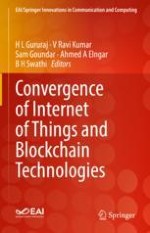2022 | OriginalPaper | Buchkapitel
13. Beyond the Bitcoin: Analysis of Challenges to Implement Blockchain in the Jordanian Public Sector
verfasst von : Abeer F. Alkhwaldi, Fairouz M. Aldhmour
Erschienen in: Convergence of Internet of Things and Blockchain Technologies
Aktivieren Sie unsere intelligente Suche, um passende Fachinhalte oder Patente zu finden.
Wählen Sie Textabschnitte aus um mit Künstlicher Intelligenz passenden Patente zu finden. powered by
Markieren Sie Textabschnitte, um KI-gestützt weitere passende Inhalte zu finden. powered by
